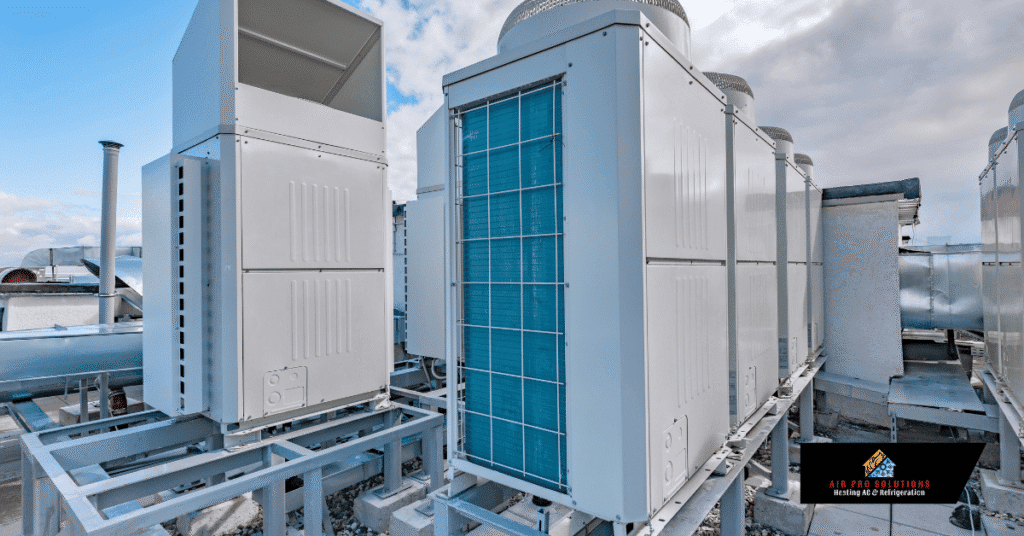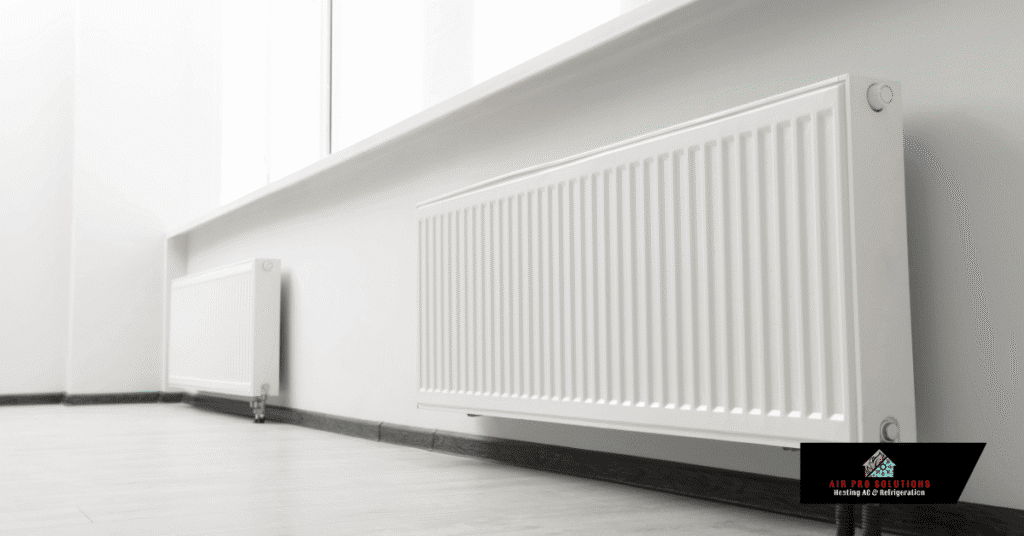Heating and cooling are essential parts of making a home comfortable. When homeowners start comparing systems, the terms forced air and central air often create confusion. Both relate to how an HVAC system distributes heat or cool air, but they are not the same.
Which Is Better: Forced Air vs Central Air Systems?
Forced air refers to the way a heating and cooling system moves heated or cooled air throughout the house using ducts, while central air conditioning is designed specifically to cool indoor spaces.
For Auburn WA homeowners, knowing the difference between forced air and central air systems is more than just a technical detail it helps guide installation choices, repairs, and long-term efficiency. This article explains how each system uses energy, highlights their pros and cons, and helps you decide which option is better for your home.
What Is a Forced Air System?
A forced air system uses ducts to move conditioned air through the home. The process begins with a furnace or heat pump that creates warm air or cool air. A blower then pushes that air through vents, distributing air throughout the house quickly.
Advantages include flexibility one forced air system may provide heating and cooling in the same setup. In Auburn’s damp winters and mild summers, this versatility makes it a reliable choice. Regular filter cleaning and seasonal repair or maintenance are required to keep efficiency high.
What Is a Central Air System?
A central air system focuses strictly on cooling. A central air conditioner or heat pump absorbs heat indoors, then cools the air and circulates it through ducts. The central air conditioning unit often pairs with a central heating system such as a furnace.
Many homeowners confuse central air HVAC systems with full coverage heating, but central air refers only to cooling. If your home heating is already covered by a furnace or boiler, adding central air conditioning can improve comfort in the summer without replacing your existing heating system.
Key Differences Between Forced Air and Central Air
Understanding the differences between these systems helps when deciding between forced air or central air HVAC:
- Scope of use: Forced air systems can also deliver both heat and cool air, while central air systems use ducts only for cooling.
- System pairing: Central air conditioning systems are typically paired with a furnace or heat pump.
- Terminology: All central air systems are forced-air systems, but not all forced air systems are central air.
- Design: The layout of your home may influence which system is more cost-effective.

Pros of Forced Air Systems
- Provides heating and cooling in one package.
- Works with filters and purifiers to improve indoor air quality.
- Moves heated or cooled air quickly through ducts.
- Can pair with efficient heat pumps or furnaces.
Cons of Forced Air Systems
- Air systems are more expensive if ducts need replacement.
- Leaks in ducts waste energy and reduce comfort.
- Requires routine filter cleaning and seasonal repairs.
- Air systems are often noisier compared to ductless options.
Pros of Central Air Conditioning
- Distributes cool air throughout the home consistently.
- Runs more quietly than portable units.
- Enhances comfort without bulky window units.
- Fits well with existing furnace or heat pump systems.
Cons of Central Air Conditioning
- Offers only cooling, not heat.
- Installing a central air system costs more than room units.
- Efficiency depends on duct condition.
- Systems are generally less efficient if oversized.
Cost Comparison: Installation and Maintenance
| System Type | Average Installation Cost | Maintenance Needs | Typical Lifespan |
| Forced Air (Furnace + AC/Heat Pump) | $6,000–$12,000 | Filter cleaning, duct inspections, seasonal tune-ups, repairs | 15–20 years |
| Central Air Conditioning Only | $4,500–$9,000 | Annual service, refrigerant checks, duct cleaning | 12–17 years |
Both require regular cleaning, repair, and installation inspections to avoid breakdowns. Skipping maintenance reduces efficiency and shortens lifespan.
Which Is Best Air Systems For Auburn WA Homes?
Because Auburn experiences damp winters and warm summers, a forced air HVAC system offers the most balance. It combines a heating and cooling system in one, ensuring reliable comfort year-round.
However, central air can help if:
- You already have air heating systems installed.
- You only need cooling for certain months.
- You prefer a straightforward air conditioning unit.
For homes without ducts, ductless mini-split systems are another option. These distribute cooled air throughout specific rooms and are easier to install in older homes.

Professional Insight from Air Pro Solutions
At Air Pro Solutions, our services include:
- Air conditioner installation and repair
- Furnace repair and seasonal cleaning
- Heat pump installation for efficient heating and cooling
- Ductless systems for homes without ducts
- Emergency HVAC repair and maintenance
We ensure every system is installed properly, cleaned regularly, and repaired quickly to improve air quality by filtering dust and to provide lasting comfort.
Final Thoughts: Forced Air vs Central Air – Choosing the Right System
The difference between central air and forced air systems matters when selecting the best system for your home. Forced air systems provide versatility for both heat and cool air, while central air conditioning systems specialize in cooling.
If you’re unsure, choosing between a forced air or central air system should be done with professional guidance. At Air Pro Solutions, we’ll explain options, check your indoor air quality, and ensure the system uses ducts efficiently to deliver comfort.















